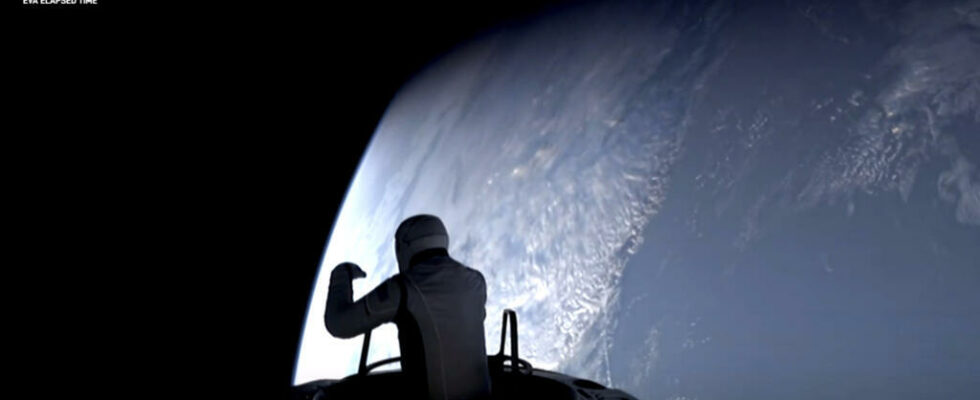And you, how about a vacation in space? 10 days ago, space travel took a spectacular step forward! For the first time, four non-professionals went on a spacewalk and returned from a flight nearly 1,000 km above the globe. This success is due to the American Polaris mission from Elon Musk’s company, SpaceX. While the Americans remain the pioneers of space excursions, other countries are joining the race. Will Europe be able to catch up?
European obstacles: insurance, ecology, health
For Michel Messager, founder of the European Institute of Space Tourism, the UNITED STATESIndia or the United Arab Emirates have understood the enormous economic potential of weightless flights in thespace.
The problem, he says, is the state of mind in Europe: ” Indeed, in Europe, the generation destined for space tourism is now 20 years old. However, young people are more concerned about the environment than their elders. Hence the importance of informing them about new rockets that use more environmentally friendly fuels. On the other hand, space tourism is being held back by European insurance companies, which are much more cautious than in the United States, India, China or Japan. »
Space tourism, terrestrial profits
Whether it is the clothing industry, theme parks such as Futuroscope in Poitiers or the brand new space hotels and tourist parks in Los Angeles, they all make extensive use of the imagination evoked by space tourism, which represents a significant economic windfall for them. It remains to convince decision-makers, governments and industrialists of theEuropean Union.
According to experts, Europe lacks a global strategy on the issue of these space adventures. European talents are there (engineers, technicians, mechanics, etc.), it would be enough to add the commercial and industrial dimension, as the Americans and Japanese are currently doing.
Stratoflight, the beauty of the earth for the average Joe
Former airline pilot, Arnaud Longobardi believes in the future of space tourism. His company Stratoflight wants to democratize transportation in space. To do this, this Frenchman is inventing expeditions at lower space altitudes. His shuttles will fly on hydrogen or gas. Intermediate-height flights, sufficient to overcome gravity and see the Earth from above.
In early 2025, it will launch a new model of shuttles intended to ultimately accommodate six passengers: “ The space adventure will be like the aviation adventure! By traveling, rockets and shuttles will benefit from more ecological fuels and innovations. Moreover, one of the specificities of these adventures will fight against bad practices! By discovering the beauty of the earth, citizens will realize its value and its fragility. The interest in developing tourism is crucial. There should be a more involved European political will. »
In France, partnerships between startups and government
However, in Europe, things seem to be moving, especially in France. New public-private aid programs are developing. The country seems to understand its interest in not leaving space tourism to the rest of the world.
